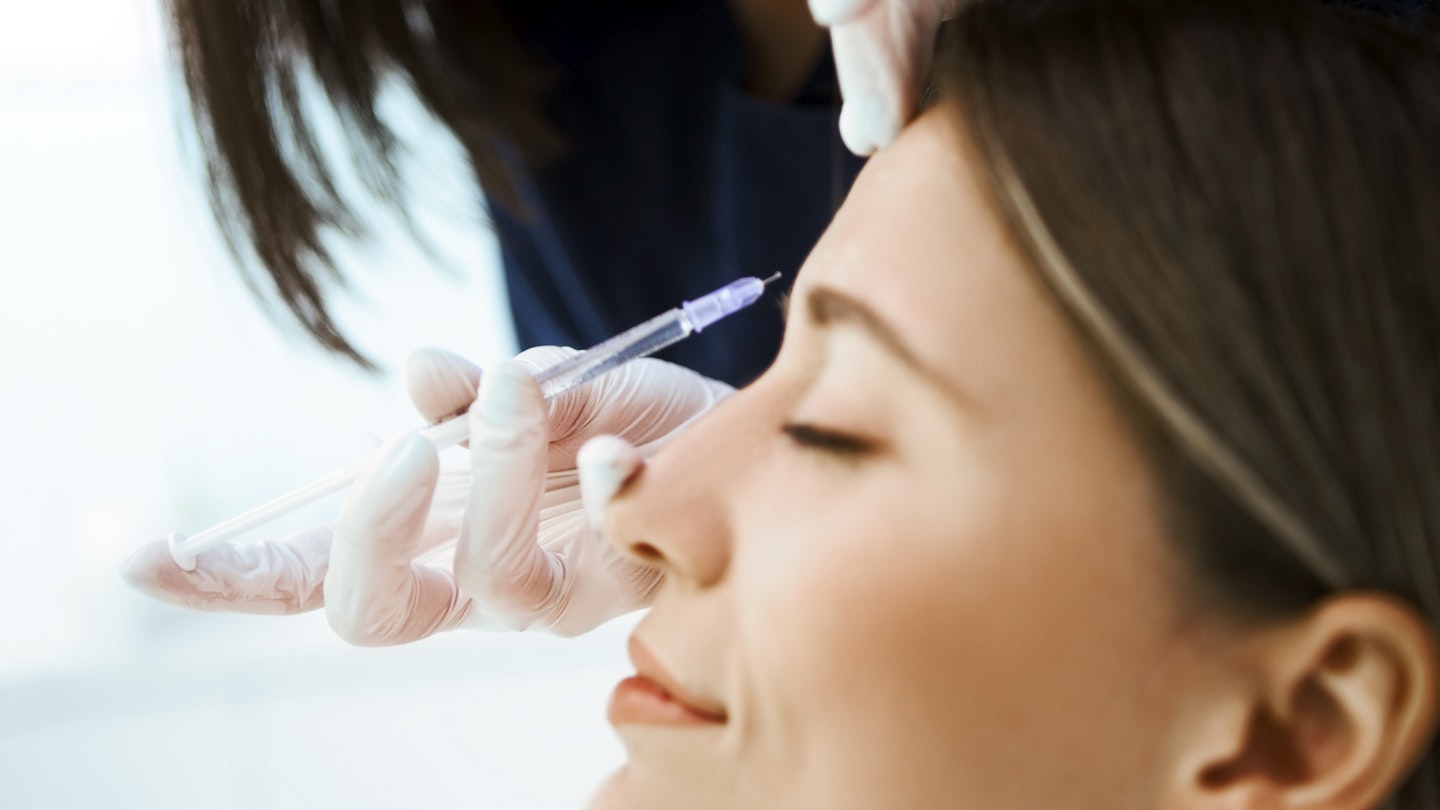There are a lot of ‘dos’ and ‘don’ts’ when it comes to pregnancy skincare. ‘Don’t use retinols’; ‘avoid salicylic acid’; ‘steer clear of spray-tans’, are just a few examples of the advice often bestowed by dermatologists and beauty brands alike. But what about aesthetic treatments? Should you go cold turkey if you routinely have Botox or is it safe to continue?
While the majority of us may assume Botox is a bad idea during pregnancy, we put it to the experts to find out their take and professional advice on the matter…
Can you have Botox when you're pregnant?
‘As a medical professional, it’s important to assess each case individually and weigh up the benefit of treatment versus the risk,’ says Dr Lauren Hamilton, Cosmetic Doctor and founder of Victor & Garth. ‘Personally, I would not treat pregnant women and would strongly advise that anyone seeking treatment while pregnant gets appropriate advice beforehand from their GP or specialist.’ The reason why? ‘There’s little known data on the use of Botox in pregnancy or breastfeeding mothers and the subsequent effects on the foetus,’ adds Hamilton.
Cosmetic doctors, Dr Sebagh and Dr Michael Prager agree; ‘Botox has not been tested on pregnant women and will never be tested due to obvious ethical reasons, so no – it is not safe,’ says Dr Sebagh. And while there’s no concrete evidence to suggest Botox is unsafe during pregnancy (due to the lack of aforementioned testing), it would not be considered good practice to inject a toxin in case something did happen to the foetus. ‘The FDA recommends that it should be administered in pregnancy only if the potential benefit justifies the potential risk to the foetus,’ points out Hamilton.
For some there are medical reasons for undergoing Botox, such as to treat headaches, but the general consensus is to wait until after pregnancy and breastfeeding to have Botox.
Can Botox treat headaches?
Short answer = yes, Botox can help treat headaches. 'Botox, when administered appropriately, can be extremely useful in treating common migraines,' confirms Sebagh.
'The Botox is injected into various muscles on the head and neck based on where the symptoms are arising,' says Hamilton, 'suitable sites include upper forehead, temporalis, trapezius, occipitalis and cervical paraspinal.'
'The relaxation that follows the treatment appears to somehow reduce or eliminate the headaches until the Botox has worn off,' explains Prager. This can take anywhere between 3-6 months.
What's the best method for treating headaches in pregnancy?
If you are pregnant and suffer from severe headaches, Hamilton recommends simple painkillers, 'There are specific medication for relief of migraine symptoms or prophylactic medication that your GP can prescribe. But if a patient is pregnant, the risk vs benefit of these also needs to be considered with GP.' It's also worth investigating the triggers; 'diet, tiredness and lifestyle can all have an impact,' says Hamilton. 'In saying this, symptoms can be debilitating so I empathise with any women seeking help for this.'
READ MORE: Chrissy Teigen Shares Her Skincare Secrets Including The £10.99 Pore Strips She Swears By
